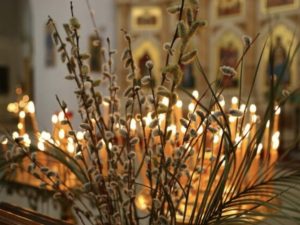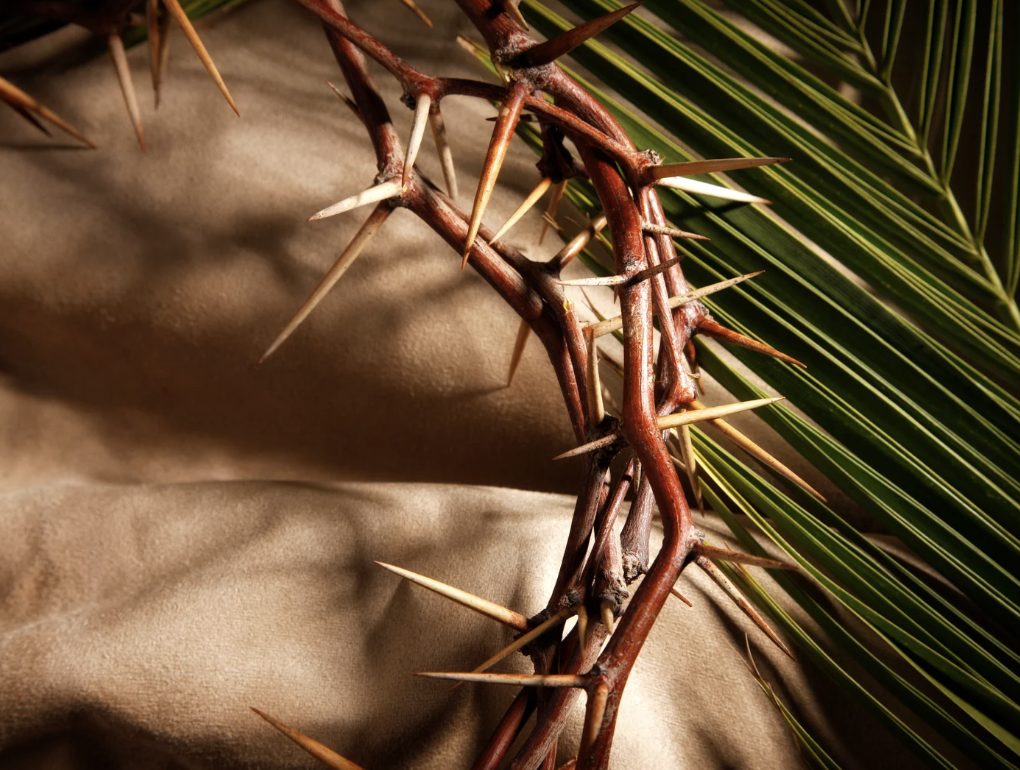Holy Week in the Eastern Catholic Tradition: Reflection, Prayer, and the Path to Easter
As we enter Holy Week, the liturgical year’s most solemn and profound week, we journey with Christ from his triumphant entrance into Jerusalem to his betrayal, crucifixion, and resurrection. Holy Week is a time of deep reflection, prayer, and preparation, guiding us to the joyous celebration of Easter. In the Eastern Catholic tradition, Holy Week is not just a historical remembrance but a living reality, calling each of us to examine our hearts, renew our faith, and embrace Christ’s victory of life over death.
From Palm Sunday to Betrayal: A Time of Reflection

On Palm (Willow) Sunday, we recall the day Jesus entered Jerusalem to the shouts of “Hosanna!” (Matthew 21:9). People laid palm branches before him, recognizing him as the long-awaited King of Kings. However, just days later, the same crowds who welcomed him turned against him, calling for his crucifixion. This stark contrast serves as a lesson for us today: how often do we praise God in moments of joy but abandon him in times of trial? This week challenges us to remain steadfast in faith and avoid the hypocrisy of those who first welcomed and then condemned Christ.
In the Ukrainian tradition, we bless willow branches instead of palm branches, as they symbolize new life and are the first flower of spring. After being blessed in church, these branches are taken home and placed near icons as a reminder of Christ’s victory over sin and death and our call to remain faithful.
The Mystical Supper and the Betrayal of Jesus
On Holy Thursday, we remember the Mystical (Last) Supper, when Jesus instituted the Holy Eucharist, offering his body and blood for our salvation (Luke 22:19-20). This day also reminds us of Judas’ betrayal, a painful reality that reflects the human tendency toward sin and turning our backs toward God. Just as Jesus washed the feet of his disciples (John 13:14-15), we are called to humility and service, and to choose love over betrayal in our own lives.
Good Friday: The Crucifixion and the Price of Our Sins
Good Friday is the most sorrowful day of Holy Week, as we remember Christ’s passion, suffering, and death on the cross. The Gospel tells us that Jesus willingly accepted the cross, enduring pain and humiliation for our salvation (Luke 23:33-46). It is a day of strict fasting and deep prayer. Many faithful attend the Good Friday services, venerating the Holy Shroud (Plashchanytsya), which represents Christ’s body in the tomb.
Why Do We Venerate the Holy Shroud?
The Plashchanytsya is an essential part of the Eastern Catholic Holy Week tradition. It reminds us of Jesus’ sacrifice and calls us to reflect on our own. As we kneel before it, we pray, asking for forgiveness, strength, and a renewed heart. This moment teaches us about Christ’s ultimate act of love – giving his life for us – and calls us to repentance and transformation.
Holy Saturday: A Day of Silence, Reflection, and Preparation
On Holy Saturday, the Church remains in solemn silence as we reflect on Jesus’ time in the tomb. It is a day of quiet mourning but also of hopeful anticipation. The darkness of the tomb is not the end but the threshold to the Resurrection. We are reminded that suffering and trials do not have the final word – God’s love and victory over death do.
For many Ukrainian families, Holy Saturday is also a time of preparation. People gather with their loved ones to bake paska (Easter bread), prepare traditional foods, and dye pysanky (Easter eggs), which symbolize new life. The act of preparing food is not just a cultural practice but a reflection of our spiritual preparation – just as we cleanse our homes and prepare feasts, we must also cleanse our hearts and prepare to receive the Risen Christ in the Eucharist on Easter morning.
How Should We Spend Holy Week?
Holy Week is a time for personal and communal prayer, fasting, and acts of charity. Here are some ways to live these days with meaning:
- Attend Church Services – Participate in the solemn liturgies, including Good Friday services, the veneration of the Holy Shroud, and the Easter Vigil.
- Examine Your Conscience – Reflect on your spiritual life and seek the Holy Mystery of Repentance (confession), allowing God’s grace to renew your heart.
- Pray and Read Scripture – Meditate on the Passion narratives (Matthew 26-27, Mark 14-15, Luke 22-23, John 18-19) and unite your struggles with Christ’s suffering.
- Forgive and Let Go – Holy Week calls us to forgive those who have hurt us, just as Christ forgave those who crucified him.
- Engage in Acts of Charity – Help those in need, visit the sick, and support those who are alone.
- Prepare with Your Family – Spend time together in prayer, share traditions, and teach children the meaning of Easter.
Holy Week: A Time of Hope and Transformation

As we approach Easter, let us embrace Holy Week as a sacred opportunity for renewal. The betrayal, suffering, and crucifixion of Christ lead not to despair but to hope. The darkness of the tomb gives way to the brilliance of the Resurrection.
Through prayer, fasting, acts of love, and sincere reflection on Christ’s sacrifice of love for us, we prepare to celebrate the greatest victory of all – life over death, truth over falsehood and love over sin. May this Holy Week be a time of transformation, drawing us closer to God and to one another in faith and love.

